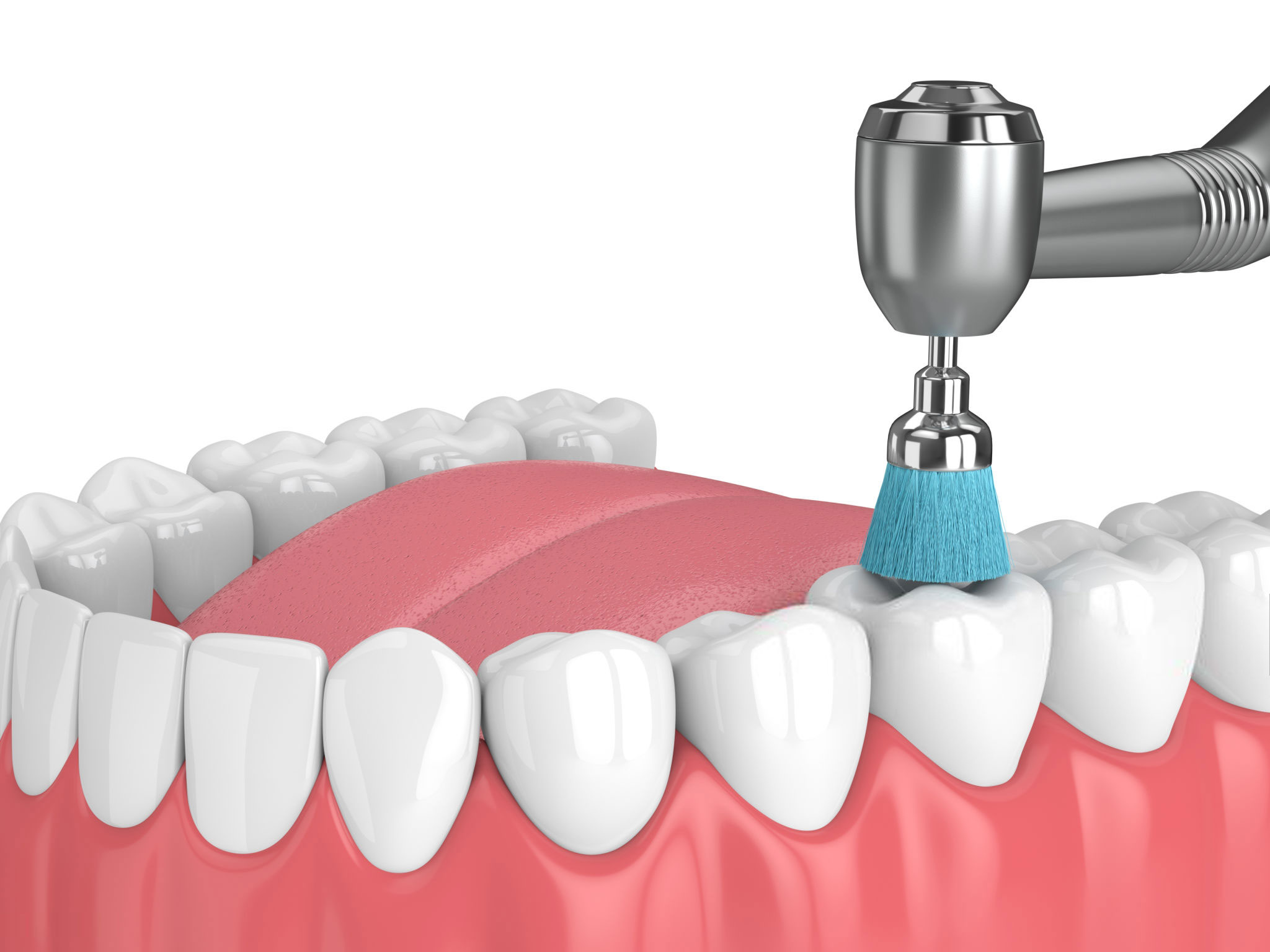Dental Cleanings and Periodontal Disease
It is important to have your teeth cleaned by a professional on a regular basis. For most people, this means once every six months. Even if you brush your teeth twice a day and floss every day, you cannot entirely prevent plaque, tartar, or calculus from accumulating around your gum line and in between your teeth. Bacteria, which forms plaque (colonies of bacteria) and gathers in tartar (mineral deposits on your teeth), secretes an acid which can cause tooth decay and inflammation of the gums, known as gingivitis. Severe infection of the gums and can influence systemic disease. A professional teeth cleaning will serve to remove bacteria and tartar from your teeth.

Routine Cleaning
Routine cleanings are performed by a dental hygienist, who has access to special tools and utensils that are designed specifically for cleaning purposes. The process begins with an assessment of your oral hygiene, including an assessment of your teeth and gum health through examination, probing of the pockets between your teeth and gums, and x-rays, as needed. If your gums are fairly healthy, a routine cleaning can usually be performed.
Deep Cleaning (Scaling and Root Planing):
For patients with more serious gum disease known as periodontal disease, a routine cleaning is inadequate. Periodontal disease is an inflammatory disease that destroys the gums and other supporting structures around the teeth, including the bone that supports the teeth. Patients with periodontal disease may experience halitosis (bad breath), bleeding gums, loose teeth, and even systemic conditions that result from the presence of bacterial colonies below the gum line. If left untreated, periodontal disease can lead to the loss of teeth that are otherwise healthy.
Treatment of periodontal disease may include scaling and root planning, also known as a deep cleaning. In such cases, the hygienist will apply a needle-free anesthetic gel beneath the gum line and then clean and smooth the infected root surfaces. Often this is completed in two appointments. We may also recommend the temporary placement of an antibiotic gel known as Arestin® below the gum line, which assists in killing the bacteria that cause periodontal disease. Following scaling and root planning, patients with periodontal disease are typically seen for reevaluation and maintenance cleanings every three to four months.
In root surface debridement (the removal of damaged tissue), and regenerative procedures (the reversal of lost bone and tissue). When necessary, periodontists can also perform surgical procedures for patients with severe gum disease. Additionally, periodontists are trained in the placement, maintenance and repair of dental implants.
Flouride
Fluoride is found in public water supplies, toothpaste, and many other dental products. Fluoride is a mineral which helps repair the early stages of tooth decay even before the decay can be seen. It is found in public water supplies, most toothpaste and other dental rinses.
Fluoride has been shown in research to help prevent cavities in both children and adults by making teeth resistant to the acids in foods and beverages that cause cavities. Brushing your teeth frequently with a fluoride toothpaste helps strengthen your teeth’s enamel and prevents cavities. We may recommend a special application of fluoride to your teeth at your dental cleaning visit. Some people are more prone to cavities and in such cases, we may recommend prescription strength rinses as well.
